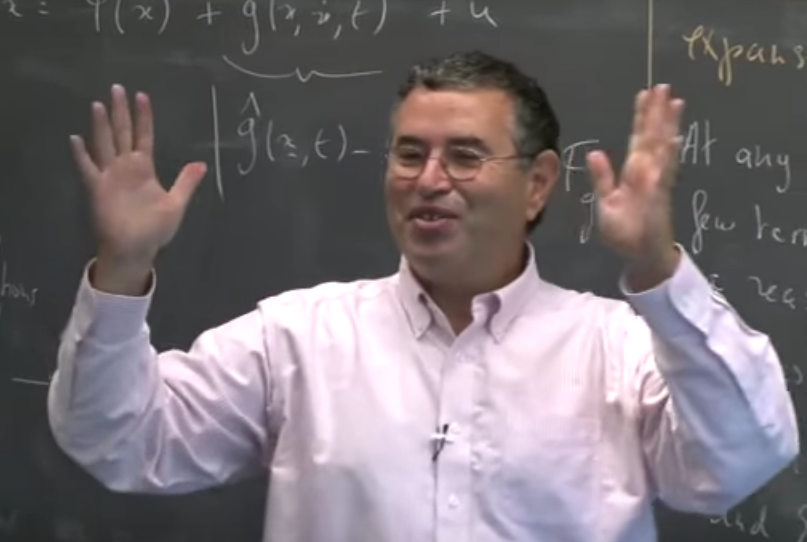Rylan Schaeffer

Resume
Research
Learning
Blog
Teaching
Jokes
Kernel Papers
The Idea Machine
by {"name"=>"Rylan Schaeffer", "email"=>"rylanschaeffer@gmail.com", "twitter"=>"RylanSchaeffer"}
Learning at Harvard and MIT in the Age of Artificial Intelligence
Background
One of my favorite books is The Idea Factory: Learning to Think at MIT by Pepper White. It tells Pepper’s story as a student earning his Master’s in Mechanical Engineering at MIT in the 1980s, capturing his experiences as a student and as a researcher, including his constant feelings of inadequacy. Forty years later, as a Master’s student at Harvard conducting research in MIT’s Brain and Cognitive Science Department, these posts are my stories, inspired by Pepper and in tribute to those who came before. To highlight my favorite quote, “If I could see […] an insight, a new way of looking at [a problem] that would maybe, just maybe, find its way into future generations […] In the Eiffel tower of technology, I would be a rivet.”
Remote Learning
Because my grad dorm, my home department, and my lab building at MIT closed, I moved back home to California. To support the exodus of students from campus, Harvard and MIT both switched to remote learning, relying heavily on Zoom. The new system has its advantages and disadvantages. On the plus side, lectures and meetings are recordable, I can hold private conversations with other participants, and I can tune out if the speaker is uninteresting or wasting time. On the negative side, I now wake up at 6 AM for my 9 AM MATH 110 lecture; speakers are unable to read the room, and consequently blow through material much more quickly than they would otherwisel no one respects meeting end times. Nearly every meeting I’ve had since returning home has ran 15-45 minutes over, and people are quite shameless.
One perk of using Zoom is that if you have a green screen, you can display background images; using red poster board paper, I did exactly that. So far my favorite background images to display include screenshots of Professor Slotine mid-lecture (left) and Andrew Ryan’s Welcome to Rapture sign (right).


Another difference between being present and being remote is that the likelihood of chance encounters falls essentially to zero. This has forced me to be much more intentional with how I socialize. If I don’t reach out, the only people I see during a day are my parents. If I do reach out, I need to do so days in advance, and with specific time intervals in mind. It’s honestly quite nice, but there’s something insufficient about online interaction.
Moral Dilemmas In the Face of Coronavirus
On Wednesday, Harvard Hillel hosted Professor Michael Sandel and Rabbi Shai Held for a discussion titled “Moral Dilemmas In the Face of Coronavirus: A Conversation Between Michael Sandel and Shai Held.” My parents and I watched the conversation and enjoyed it tremendously. Both guests were incredibly well spoken. I submitted the following question, which unfortunately went unasked and thus unanswered: “As a young adult, some my age view society’s largest challenges (economic inequality, climate change, etc.) as the direct consequence of older generations enriching themselves at our expense. Now we’re expected to further harm our already impoverished well-being for these same older generations - why is this a fair request to impose on us?” I emailed the question to Sandel - if he answers, I’ll provide an update.
Two insights stuck with me, both made by Shai Held. The first was a comment that while feminism has made great strides in transforming traditional male jobs into respectable professions for women, very little progress has been made towards making traditional female jobs (e.g. nurse) into respectable professions for men. The second was a comment about an insidiousness implication of meritocracy, that “a perfectly meritocratic society is devoid of compassion,” because if society is truly perfectly meritocratic, then you deserve exactly what you have - nothing less and nothing more. Both he and Sandel connected this back to the prevailing American sentiment that the wealthy deserve their wealth because they earned it, which conversely implies that the poor deserve their poverty.
Coursework
On Thursday, I had my midterm for 2.152/9.110, Professor Slotine’s Non-Linear Control course. Topics cover different definitions of stability, proofs for showing the (in)stability of systems, and robust/adaptive control. It was my first MIT graduate midterm, and it went okay. Each problem on the exam was certainly solvable, but the combined duration I would need to solve each problem exceeded the available time. What was surprising for me is that while everything was derivable (and indeed, that’s how I approached each problem), it seemed to me that in order to finish on time, one needed to have memorized/internalized the end statement of most results. For instance, one problem asked us to design a switching controller to track a specific trajectory $x_d$ in the third order system:
\[\dddot{x} + \ddot{x} + (1 + b^3)\dot{x} + 2 \cos(c) \cos(x)x^2 = u\]where \(u = u(t, x, \dot{x}, \ddot{x}, \dddot{x}, \dot{x}_d, \ddot{x}_d, \dddot{x}_d)\) is the control law. This is no different than the second order case: we start by defining our error \(\tilde{x} = x - x_d\) and a simplified system \(s = (\frac{d}{dt} + \lambda)^2 \tilde{x}\) and then use Barbalat’s Lemma on the the Lyapunov function candidate \(V(x, \dot{x}, \ddot{x}) = \frac{1}{2}s^2\) to show that with the right control law \(u\), the sliding condition is met, meaning \(s \rightarrow 0\). But writing out the entire derivation to design the right control law \(u\) is time consuming.
I told myself that even if I don’t receive top marks on the midterm, I went from having never thought about a differential equation 8-9 years to at least receiving a passing grade in a non-linear control course, and I can take pride in that.
Dating Troubles
Before I moved to Harvard at the end of August, I had a chance encounter with an acquaintance of mine from undergrad. I asked her if she wanted to catch up, but we couldn’t find time with our busy schedules. Fast forward to Christmas break, and I reached out again. She expressed interest in seeing me, but just when we were supposed to hang out, she texted to say she had come down with strep throat. I figured if she was desperate enough to feign strep throat to avoid seeing me, I should take a hint, so I didn’t push the point. I returned to Cambridge on December 30th, but surprisingly, we kept texting back and forth. Eventually, she said she was feeling better and asked if I wanted to hang out, so I told her that I was already gone. We continued chatting until we were basically texting for an hour a day, every day, before bed. This continued for three months or so, and we started calling, maybe two or three times a week, with longer text conversations stretching into hours.
When coronavirus shuttered campus and forced me home, I was quite excited to see her. I saw her once, but then California’s shelter-in-place took effect and I haven’t seen her since. I can’t tell whether I was so distasteful in our first in-person reunion or whether the situation combined with personal details of her life has placed her on edge, but she has stopped putting effort into responding to my texts and has declined any effort I’ve made to call. I’m not sure of what I did wrong, but I’m taking the hint. I jokingly tell myself that dating is the hardest unsupervised learning problem.
tags: idea-machine - 2020 - MIT - Harvard